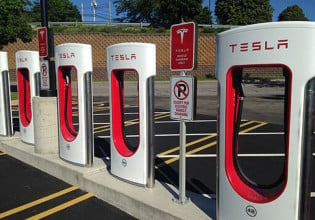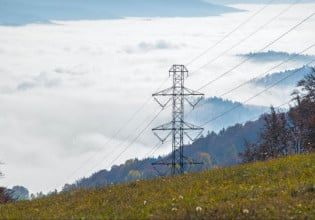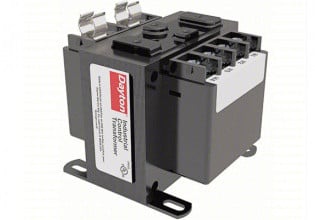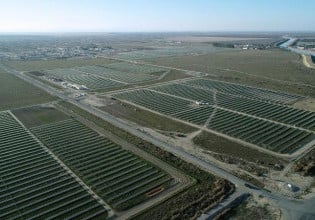Husk Power Systems Receives $749k for Microgrid Expansion in Nigeria
Husk Power Systems secures funding to continue solar microgrid expansion in Nigeria and grow its India-based operations.
Husk Power Systems has informed its customer base that it received $749,000 from the German Development Finance Institution (DEG) under its Up-Scaling Program. Funding will be used to build eight new community solar microgrids in Nigeria and support the growth of Husk Power’s India-based operations.

Husk Power aims to bolster renewable energy generation and use in Africa and Asia through microgrids. Image used courtesy of the United States Agency for International Development
Improving Access to Electricity
According to recent data from the International Energy Agency (IEA), 770 million people worldwide do not have access to electricity. The majority live in Asia and Africa. In Africa in 2013, inaccessibility to electricity peaked at 613 million people, decreasing to about 572 million in 2019. For the first time since 2013, people without access to electricity in sub-Saharan Africa rose in 2020.
In 2000, around 67 percent or 1.2 billion people could access electricity, compared to 97 percent in 2020. About two-thirds of this growth in accessibility occurred in India.
According to Mr. Electric, around 85 percent of American homes ran on electricity in 1945, and in 1960, nearly all homes could tap in.
Despite many developed countries having complete access to electricity, rural communities too far from the main grid cannot benefit from electricity facilities. Developed countries have been investing in the establishment of microgrids to combat this, which can operate using autonomous, decentralized control.
Microgrid Basics
A microgrid is a local energy system with interconnected components and distributed energy resources that function as one controllable entity in relation to the existing grid structure. A microgrid can either operate in connection with the grid (which can boost grid resiliency) or in an off-grid fashion serving rural communities. It encompasses all loads and sources of energy within a specific area. It can provide power to a local area or community, allowing them to generate and store their own energy.

Microgrids can help developing countries gain better access to electricity generated from integrated renewable energy resources. Image used courtesy of Pixabay
Microgrids are designed to provide cost-effective, reliable, and resilient electricity services while reducing environmental impacts. They can also help reduce reliance on large centralized power plants. Microgrids have the potential to revolutionize the way we use electricity by providing more efficient, reliable, and affordable solutions for both residential and commercial customers.
In 2021, the U.S. Department of Energy (DOE) reported 461 microgrids in operation with a collective power of 3.1 gigawatts (GW).
Husk Power Microgrids in Africa
In Africa, microgrid systems are slowly rising, with companies like Husk Power endeavoring to bring more reliable electrification. Husk Power has 12 microgrids in Nigeria and aims to expand this number to 500 by 2026 following the goals outlined in its “Nigeria Sunshot Initiative.” The initiative seeks to demonstrate that microgrids can be deployed at scale, improve the livelihoods of people living in Nigeria, and encourage socio-economic development.
According to Husk, the injection of $749,000 will go toward eight new microgrids, linking up over 500 commercial customers and homeowners. The microgrids will also help to minimize the number of currently used diesel generators by 400 and generate 40 new local job opportunities.
Husk Power is currently running over 100 mini-grids in Bihar and Uttar Pradesh, which provide a collective capacity of over 1.75 MW. The company’s India-based operations have created 450 job opportunities locally. Husk Power offers training opportunities focusing on operating its hybrid Solar photovoltaic (PV) and Biomass system so locals can run the power plants.






